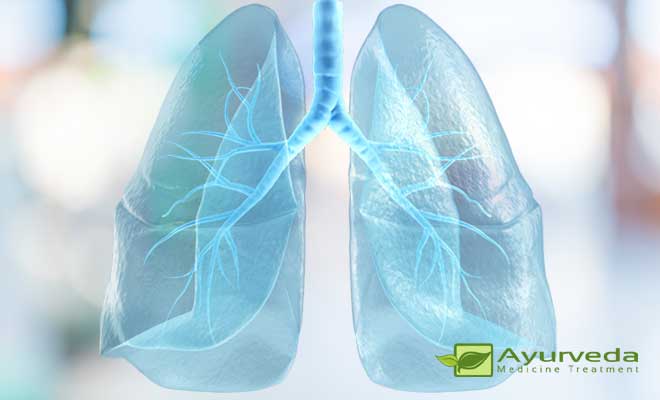
Bronchial Asthma is one of the most common types of asthma. Bronchial Asthma originates in the various parts of the gastro-intestinal tract including the tummy. Bronchial asthma also involves the lungs and the heart.
Aymptoms of Bronchial Asthma
The common symptoms of Bronchial Asthma are indigestion, diarrhoea or even constipation. It has been commonly observed that a patient prior to suffering from Bronchial Asthma experiences the following symptoms: sneezing, besides nasal obstruction and/or congestion.
Ayurvedic Explanation
Bronchial Asthma is known as Tamaka Shvasa in Ayurvedic terminology. The primary focus of Ayurvedic treatment is on the lungs, nose, bowels and the stomach.
In the chronic Bronchial asthma cases, the state of the heart is also taken into consideration in Ayurvedic treatment.
Dietary Regimen
- A patient suffering from Bronchial Asthma should regularly have different forms of pulses (especially Kulattha) and dry grapes.
- Have a light meal in the night-time.
- Alcoholic beverages can be taken in small quantities.
What not to eat
- Such people must never consume fried food items.
- Moreover, they should also stay away from guava, banana, butter-milk and curd.
- The patients must quit smoking.
- Sour food items must not be taken.
- Tea and coffee should not be taken. However, one cup of either of these beverages is allowed daily.
Other important points
- Don’t resort to physical exertions.
- Hard exercises must be avoided.
- Don’t get exposed to extreme weather conditions. Exposure to severe cold wind or rain is harmful for the patient.
Ayurvedic Treatment for Bronchial Asthma
Ayurveda has a varied list of medicines to treat Bronchial asthma.
The commonly prescribed medications for the patients suffering from Bronchial Asthma are as follows: Pippali powder, Sitopaladi churna, Agastya rasayana, and Chayavana prasha.
Pippali Powder and Sitopaladi Churna
Pippali powder is to be taken along with the other prescribed Ayurvedic medicines particularly Sitopaladi churna. The combined effect of both these medicines provides relief to the patient at the initial stages. This balmy effect ultimately sets the stage for cure of the disease.
Since Pippali powder or Sitopaladi churna taken all alone can cause throat irritation, the powder should be mixed with honey.
The Dose: The patient should have a teaspoonful of Pippali powder mixed with an equal quantity of Sitopaladi churna added to an equal amount of honey to make it into linctus. The concoction needs to be consumed thrice or four times daily.
Agastya Rasayana And/OR Chayavana Prasha
Agastya rasayana and/or Chayavana prasha has curative as well as preventive value.
Both Agastya rasayana – linctus – and/or Chayavana prasha should be taken during and even after the asthma strikes.
Agastya rasayana is recommended for patients suffering from Bronchial asthma along with constipation. Agastya rasayana is also ideal for those patients suffering from bronchial asthma as and who also suffers from throat congestion, nostril block, and sneezing.
On the other hand, Chayavana prasha is basically a tonic and is ideal for patients suffering from bronchial asthma, and who is constitutionally rather weak. However, the full effect of Agastya rasayana and/or Chayavana prasha is evident only after the third week. Hence, the patients should not discontinue the medication by being impatient.
The immediate effect of consuming Agastya rasayana and/or Chayavana prasha is that this linctus reduces the acuteness of asthma attacks. The duration of successive attacks will also be shorter. Moreover, the longer duration between two asthma attacks prepares the patient to psychologically and physically fight the next asthma attack.
The Dose: Agastya rasayana and/or Chayavana prasha needs to be taken on an empty tummy. The ideal time for the medication is prior to having any food and at bedtime. The normal dose is two teaspoonfuls thrice daily.
The patient should be given a cup of either warm milk or water immediately after he/she takes Agastya rasayana and/or Chayavana prasha.
Caution Note: Heavy dose of Agastya rasayana and/or Chayavana prasha can interfere with the patient’s appetite. He/she may also suffer from loose motions. In such cases, the dose should be reduced.







Leave a Reply